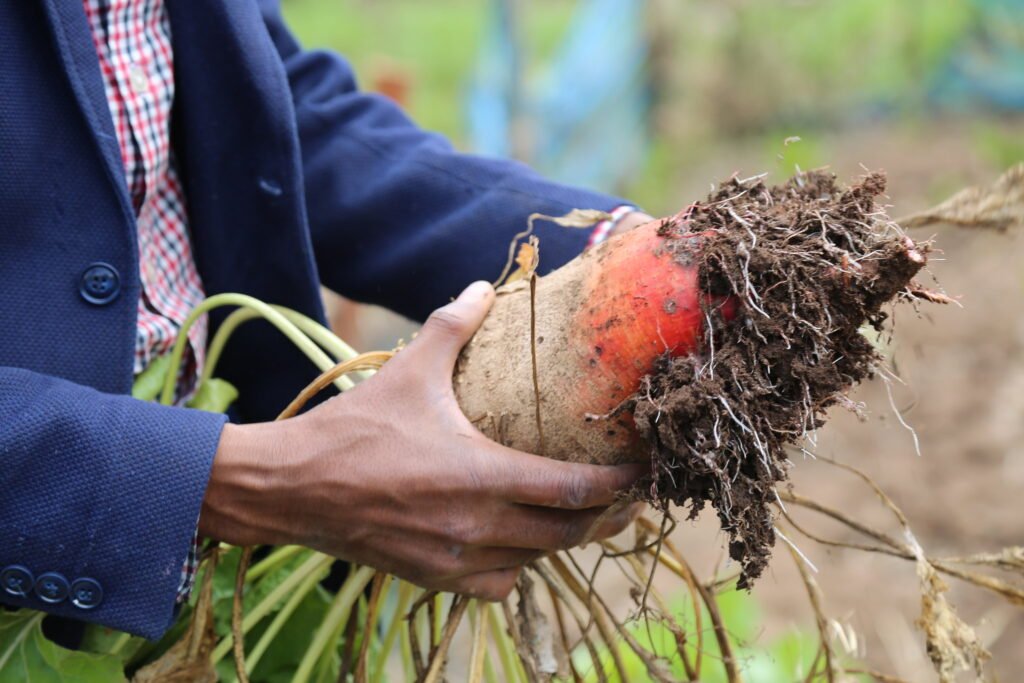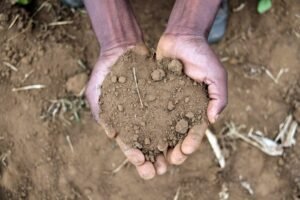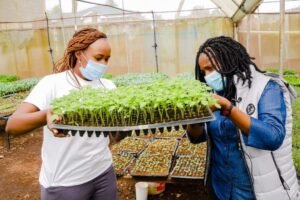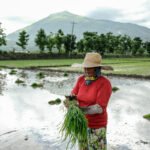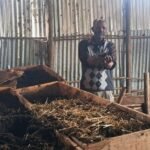By Africa RISING, June 19, 2020
A recent technical report by the Africa RISING Ethiopian Highlands Project highlights key successes in feed and forage development, field crops production and small-scale mechanization. The report, which was published last month, showcases how the integration of cultivated fodder beet improved feed biomass availability and quality for the smallholder farmers in Endamehoni, Sinana and Lemo sites in Ethiopia. 
In 2017, the introduction of fodder beet interventions aimed to diversify the forage options that farmers in Ethiopia can adopt easily and grow in their backyards. Currently, more than 100 farmers have benefited from the intervention, which has been introduced in Endamehoni, Lemo and Sinana sites. Many others have benefited indirectly through field days, experience sharing events and some farmers have also successfully managed to multiply fodder beet seeds to serve as a local seed source.
Similarly, the improved fodder beet supply has increased milk yields helping farmers to secure dairy-based food supplies for their families and led to a growing milk market in the area. Data gathered by Africa RISING Ethiopia project from the Endamehoni site indicates that the fodder beet varieties introduced by the project have high tuber yield performance at 516 tonnes/ha on fresh weight. Equally, and more important for farmers, the milk production by the cows has increased by 29% as a result of the fodder beet supplementation.
Livestock feed and forage development is an agricultural priority for the Africa RISING project in Ethiopia. For farmers like Bahafta Mersha in Embahasti Kebele, access to forage seed and seedlings allows farmers to try different improved forages seed and see what works best for them. ‘‘The fodder beet supplements are an excellent add-on for my forage garden. Now I have secured feed harvest for my livestock throughout the year. This has significantly improved the living conditions of my family and education for my children,’’ says Bahafta.
‘‘The Africa RISING project targets to reach more than 0.7 million beneficiary households in Ethiopia in the second phase by offering validated and livelihood-enhancing technologies. This intervention is just one of many that our project is promoting to improve the lives of farmers. We are keeping track on the progress and adoption of our research-in-development efforts and scaling partnerships to better understand the progress made,’’ says Ethiopia Africa RISING project leader, Kindu Mekonnen.
The impressive results of these interventions and others are captured in the recently released Africa RISING Ethiopian Highlands Project technical report for the period October 2019 – 31 March 2020.

